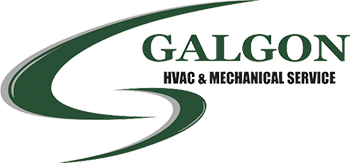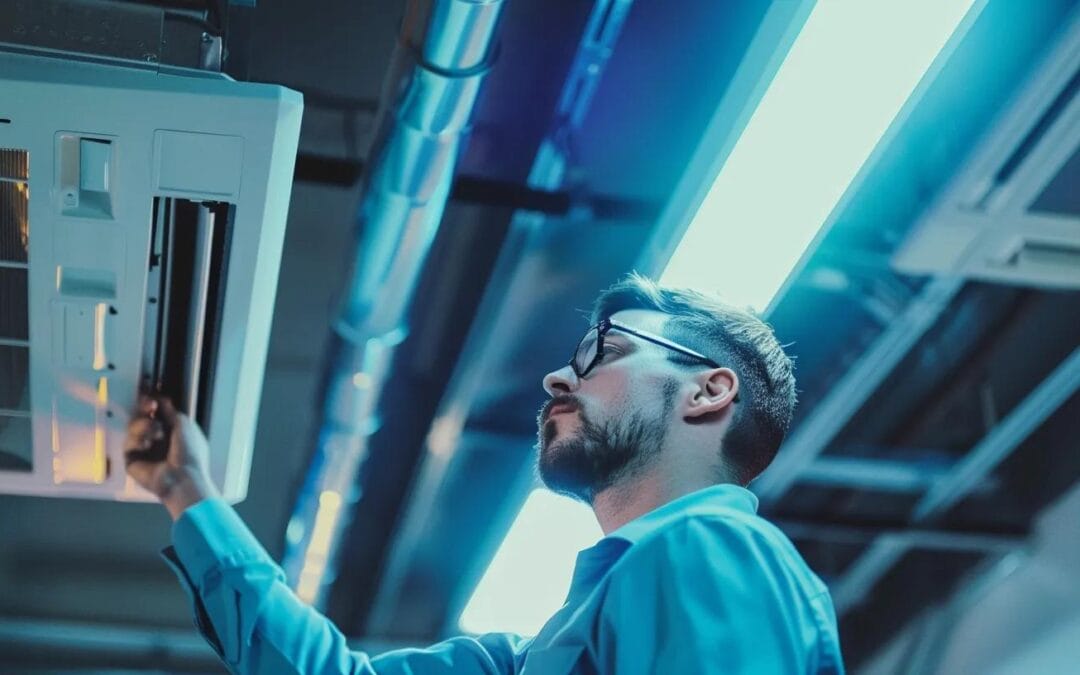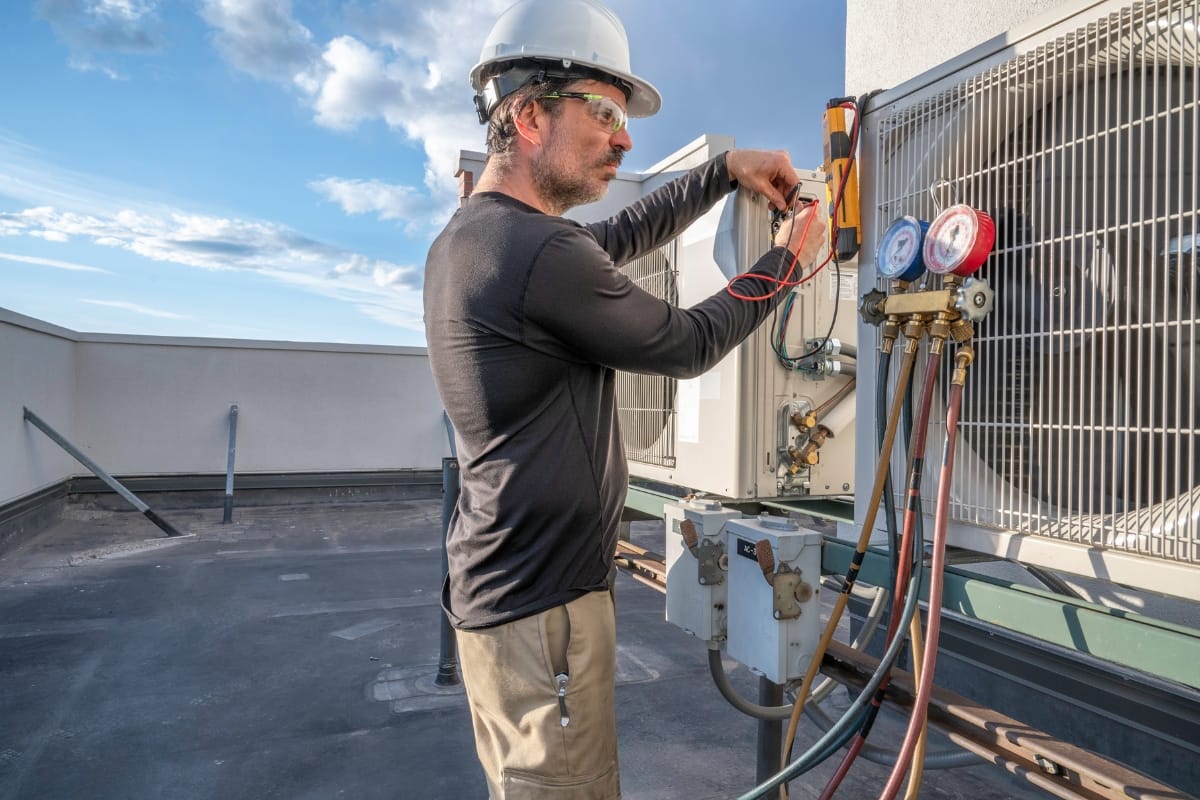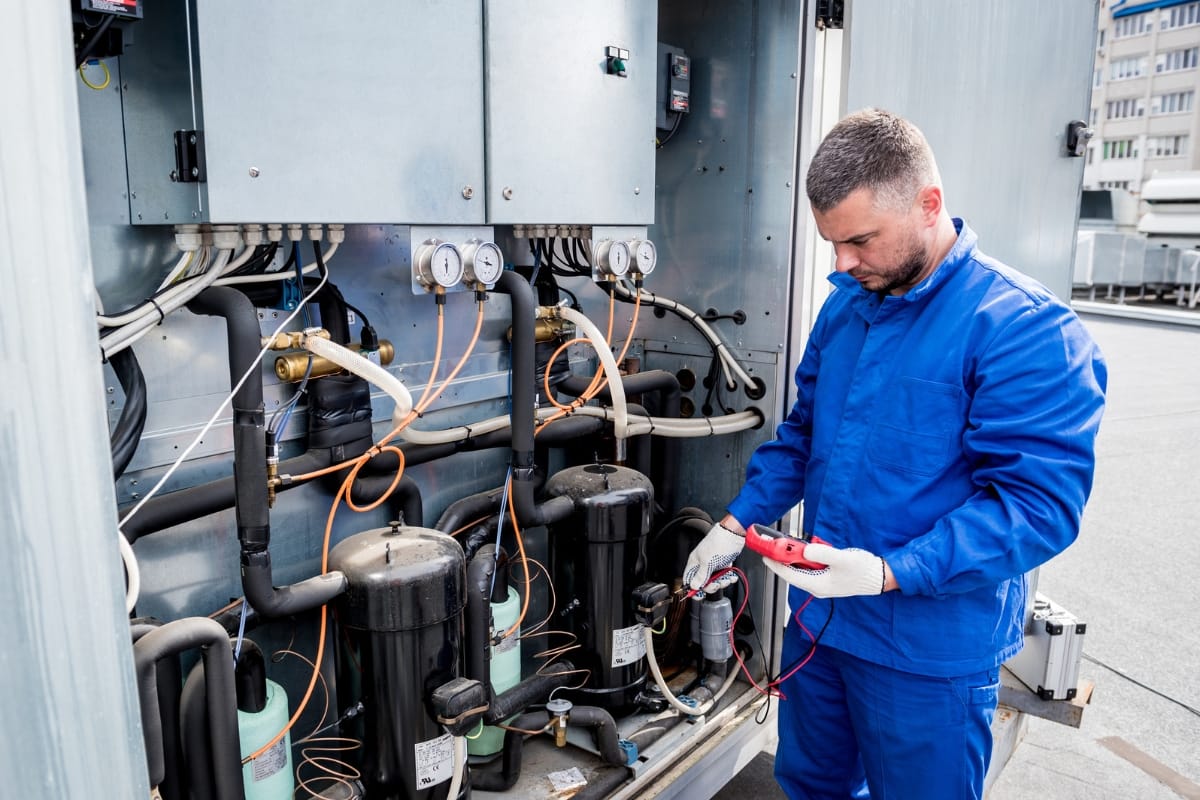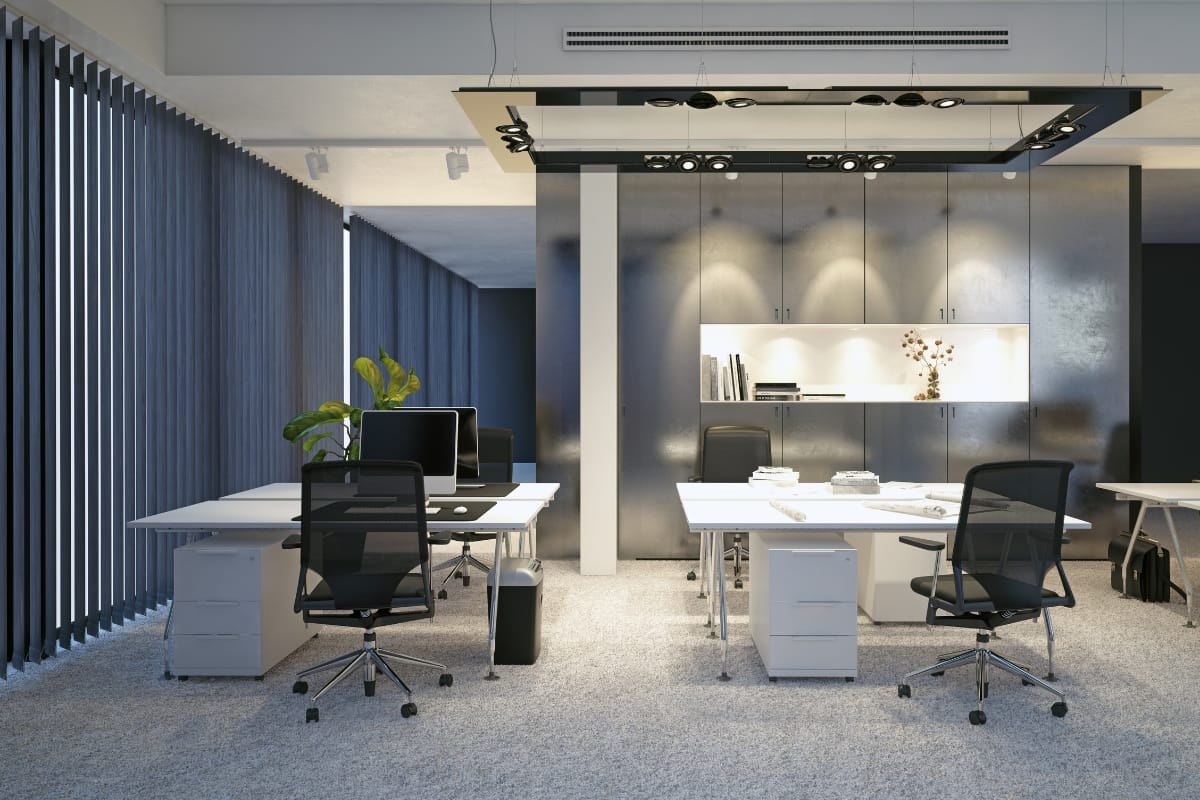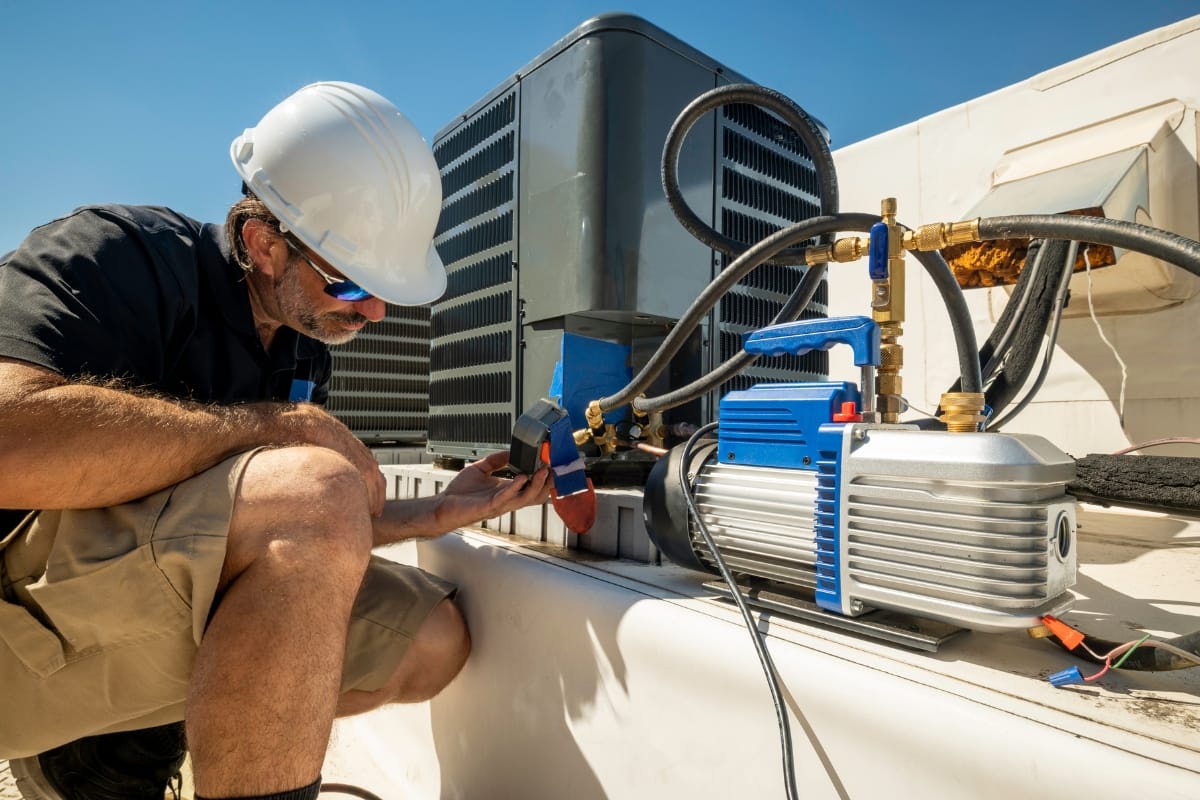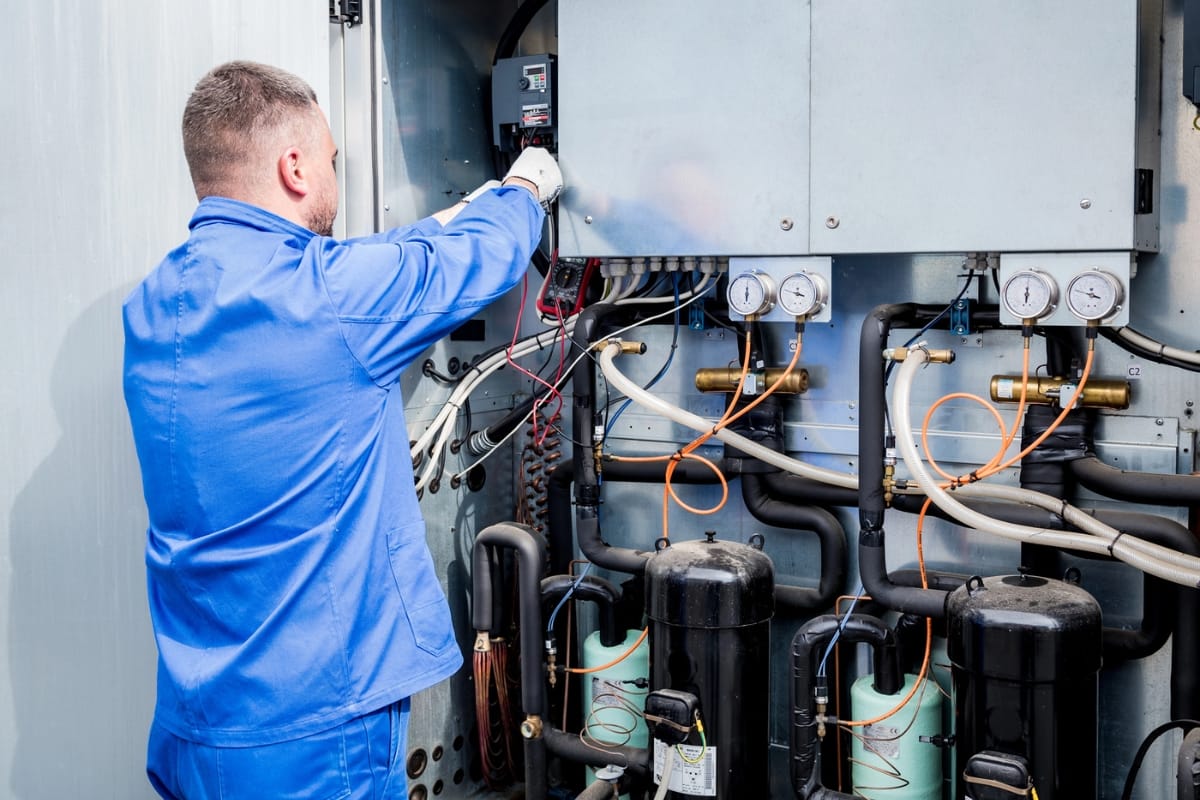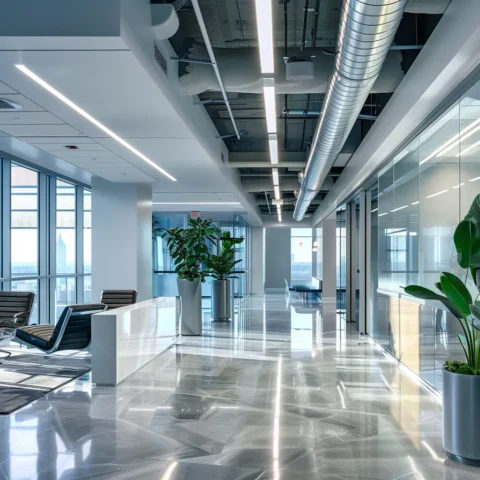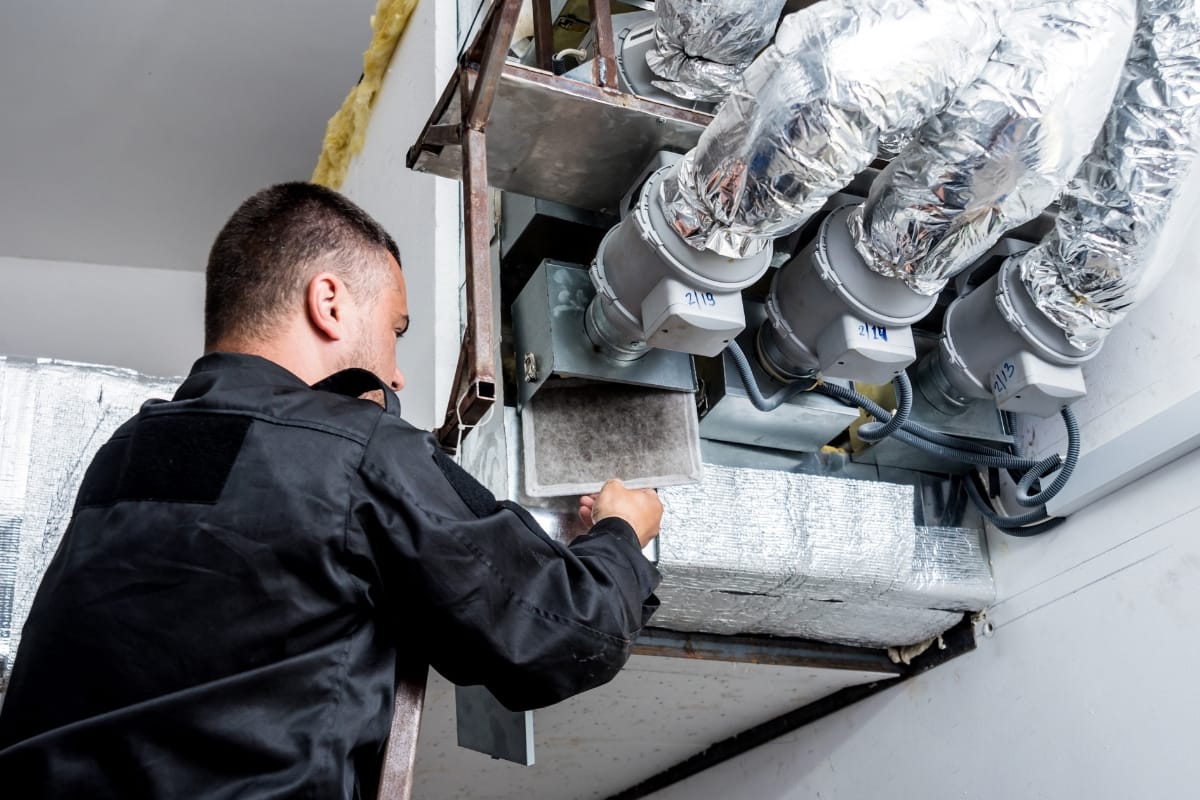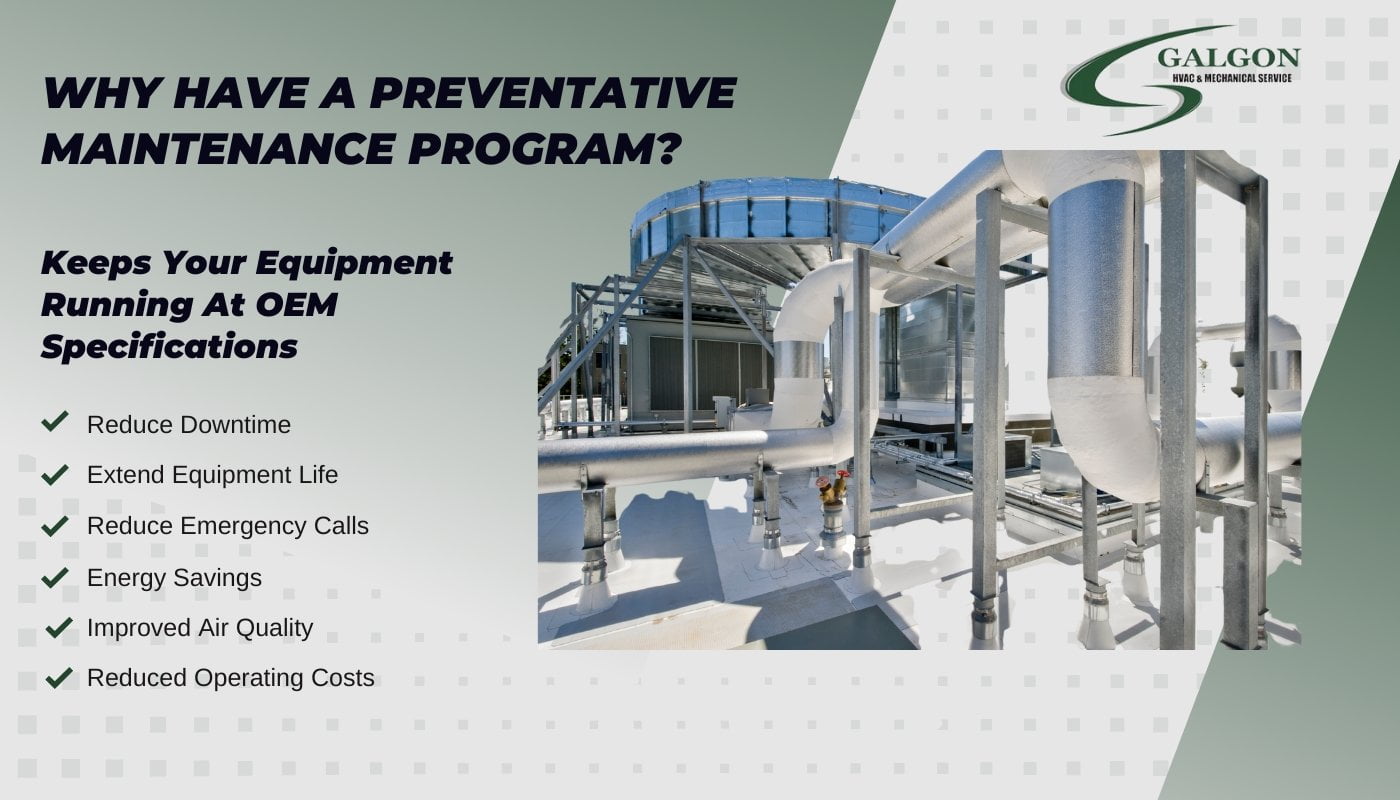In Atlanta’s dynamic climate, where summer heat and winter chills push HVAC systems to their limits, regular maintenance isn’t just recommended—it’s essential. For businesses relying on consistent indoor comfort, neglecting commercial HVAC upkeep can lead to unexpected breakdowns, rising energy costs, and shortened equipment lifespan. Fortunately, a proactive maintenance strategy can help protect your investment, ensuring your system runs efficiently year-round. In this guide, we’ll explore the key steps Atlanta business owners can take to extend the life of their commercial HVAC systems, reduce downtime, and maintain optimal performance for years to come.
Extend Your Commercial HVAC System’s Life with These Maintenance Tips
Why Is Regular Commercial HVAC Maintenance Essential in Atlanta?
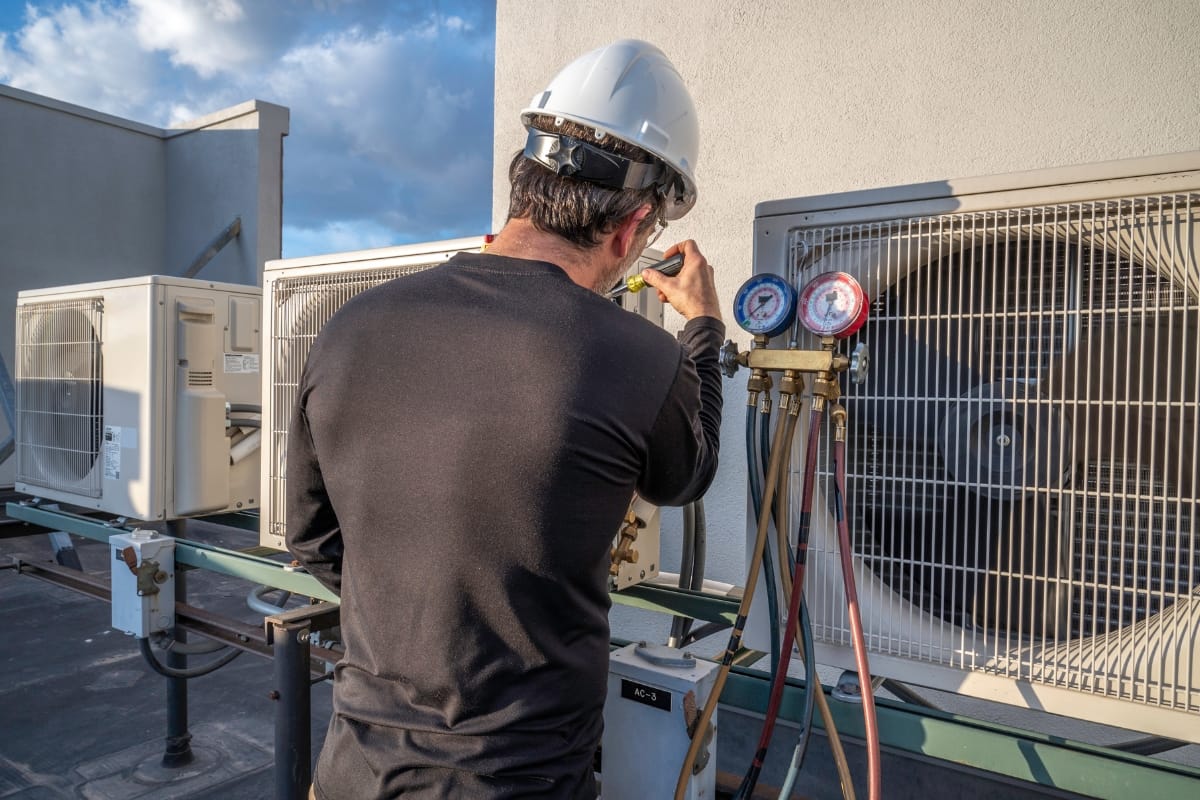
In Atlanta, commercial HVAC systems work harder than in many other parts of the country. The city’s long, hot summers and humid climate put added strain on heating and cooling equipment. Without regular maintenance, that strain leads to higher energy bills, reduced air quality, and more frequent breakdowns. Staying ahead of maintenance needs helps businesses avoid unexpected failures and keeps indoor environments comfortable for both employees and customers.
How Does Preventative Maintenance Extend HVAC System Lifespan?
Preventative maintenance is about catching small problems before they become major ones. Over time, even a well-installed HVAC system will experience wear. Filters clog, coils collect debris, and refrigerant levels may drop. If left unchecked, these issues force the system to work harder than it should, putting unnecessary pressure on components like the compressor.
Regular tasks like replacing filters, checking refrigerant levels, and cleaning coils keep everything running smoothly. When maintenance is done on a consistent schedule, systems can last years longer than those that are neglected. It also allows property managers to plan for replacements or repairs well in advance, avoiding the disruption and higher costs that come with emergency fixes.
What Are the Key Benefits of Commercial HVAC Maintenance?
Routine HVAC maintenance brings several measurable benefits to businesses. First, it helps systems run more efficiently, which cuts down on energy use. That can result in lower monthly utility costs, especially during the summer when air conditioners run nearly nonstop.
Maintenance also improves indoor air quality by keeping filters clean and reducing the buildup of allergens or mold in the system. This is especially important in office spaces or commercial buildings where poor air quality can affect employee health and productivity. Equipment that is maintained regularly breaks down less often and performs better for longer. That reliability helps prevent costly disruptions and contributes to a more stable working environment.
How Does Atlanta’s Climate Impact Commercial HVAC Systems?
Atlanta’s climate plays a big role in how HVAC systems perform and how often they need service. Summer heat and humidity are tough on cooling systems, requiring them to run for extended periods. This constant operation increases the chance of mechanical problems if the system isn’t maintained properly. Humid conditions can also lead to condensation buildup inside the equipment, which may promote mold growth or damage internal components.
In the winter, Atlanta’s occasional cold snaps create additional stress as systems switch from cooling to heating. The frequent changes in temperature mean HVAC units need to be in top shape year-round. Regular maintenance helps keep systems balanced and efficient, no matter the season.
What Are the Most Important Preventative Maintenance Tasks for Commercial HVAC Systems?
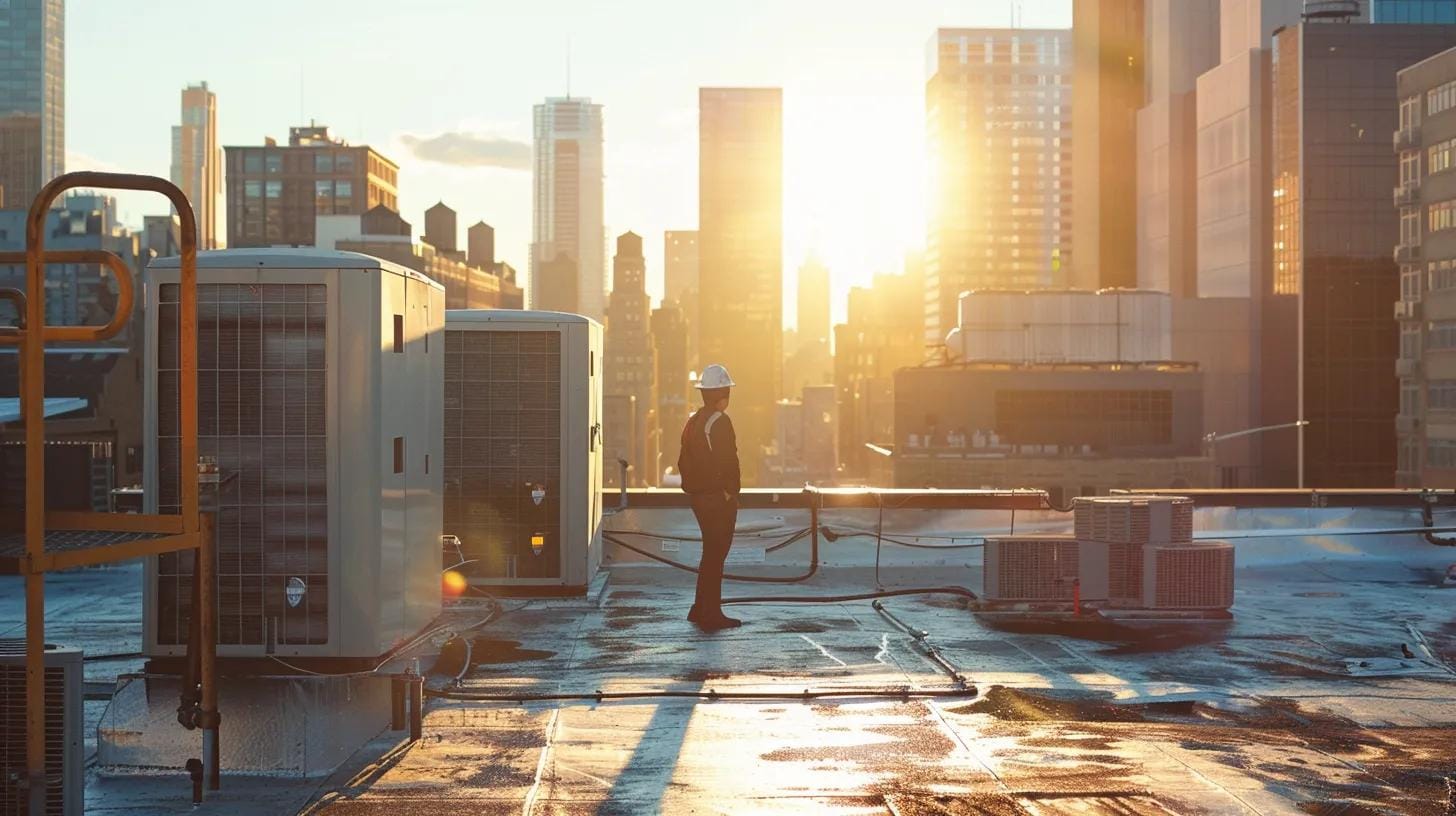
Preventative maintenance plays a critical role in keeping commercial HVAC systems running efficiently and reliably. Regular upkeep helps prevent costly repairs, improves air quality, and reduces overall energy consumption. Over time, even small issues like dirty filters or minor airflow restrictions can lead to major system failures if left unaddressed. Keeping up with scheduled maintenance extends the life of the equipment and supports consistent indoor comfort.
How Often Should Commercial HVAC Filters Be Replaced?
Filter replacement is one of the simplest but most effective maintenance tasks. Depending on usage and the building environment, filters should typically be changed every one to three months. High-traffic or dusty environments may require more frequent changes. When filters are clogged, airflow becomes restricted, making the system work harder and driving up energy use. In extreme cases, dirty filters can cut airflow by up to 30 percent, which not only strains the system but can also affect indoor air quality. Keeping filters clean helps prevent breakdowns and maintains better system performance.
Why Is Commercial HVAC Coil Cleaning Critical?
Coils play a key role in transferring heat in both heating and cooling cycles. When coils are covered with dust or grime, they lose efficiency and force the system to run longer than necessary. Over time, this added strain can lead to component failure, including issues with the compressor. Coil cleaning helps maintain effective temperature control, improves energy efficiency, and reduces the risk of mold or bacteria buildup. In humid areas like Atlanta, keeping coils clean also helps control moisture levels, which can otherwise lead to further problems within the system.
How Does Duct Cleaning Improve HVAC Efficiency and Air Quality?
Ducts carry conditioned air throughout the building. When dust, pollen, or other particles build up inside the ductwork, they not only pollute indoor air but also restrict airflow. These blockages force the HVAC system to work harder, increasing wear on components and driving up operational costs. Clean ducts support better ventilation and reduce the chances of allergens and pollutants recirculating through the building. Regular duct inspections and cleanings help maintain system performance and contribute to a healthier work environment.
What Happens During a Commercial HVAC System Inspection?
Routine inspections provide an opportunity to catch small problems before they become serious. Technicians check major components like the compressor, evaporator and condenser coils, refrigerant levels, and electrical systems. They also test airflow, thermostat function, and system controls. A thorough inspection helps ensure the system is running safely and efficiently, and that it complies with local regulations. These evaluations are typically done annually but may be needed more often for systems with high usage or known issues. Regular inspections support long-term reliability and help schedule repairs before they impact daily operations.
How Can Energy Efficiency Be Improved Through Commercial HVAC Maintenance?
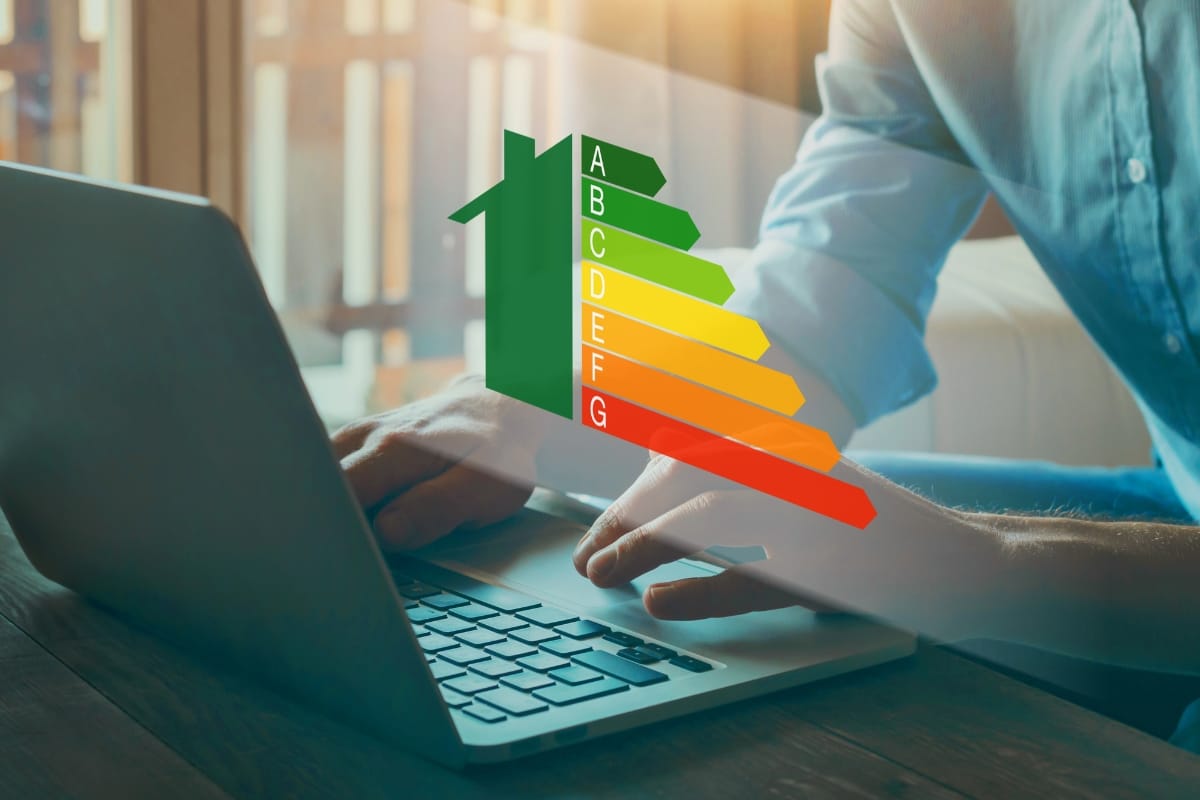
Energy efficiency in commercial buildings depends heavily on the condition and performance of HVAC systems. Regular maintenance keeps systems running at their intended capacity, which lowers energy use and helps avoid unexpected repair costs. Cleaning, inspections, and timely part replacements play a big role in preventing energy waste. A system that is not regularly maintained may require more power to do the same amount of work, driving up operating expenses over time.
Routine tasks such as replacing air filters, checking refrigerant levels, and clearing out debris from coils all contribute to smoother system operation. When HVAC systems operate without these obstacles, airflow is optimized and temperature control becomes more consistent, which leads to measurable energy savings.
What Are Commercial HVAC Energy Audits and How Do They Help?
An energy audit is a detailed evaluation of a building’s HVAC system. It identifies areas where energy is being lost and helps pinpoint what can be done to improve efficiency. These audits include an inspection of insulation, ventilation paths, equipment age, and how the system is being used throughout the day. The findings are used to recommend changes that can lead to lower utility costs and more consistent indoor conditions.
In a city like Atlanta, where climate control is essential for most of the year, these audits can highlight seasonal inefficiencies and allow for adjustments that suit the region’s hot, humid summers and mild winters. From minor adjustments to full-scale equipment upgrades, energy audits give property owners a plan to reduce consumption without sacrificing comfort.
Which System Upgrades Boost Commercial HVAC Performance?
Upgrading outdated parts of a commercial HVAC system can lead to major improvements in both performance and efficiency. Replacing older motors with variable-speed options allows fans to adjust output based on real-time demand. This not only saves power but also reduces wear on the system.
Smart thermostats are another valuable upgrade. They automatically adjust settings based on when spaces are occupied, which prevents unnecessary heating or cooling when areas are empty. High-efficiency air filters can also improve airflow while maintaining air quality, which reduces the amount of work the system has to do to maintain a set temperature.
Installing energy recovery ventilators can help a building reuse energy that would otherwise be lost. These systems capture heat or cooling from exhausted air and use it to pre-condition incoming air, reducing the overall load on the HVAC system. This results in more efficient operation, particularly in buildings with high ventilation requirements.
How Do Smart Thermostats Benefit Commercial HVAC Systems?
Smart thermostats allow for more accurate and responsive climate control. They adjust settings based on how and when a space is used, helping reduce energy use during off-peak hours. These devices often come with remote access features that let facility managers monitor and adjust settings from anywhere.
They also collect data on usage patterns and system performance. This information can alert managers to irregularities, helping identify mechanical issues before they become serious. In the long run, smart thermostats contribute to both energy savings and system longevity.
What Are Common Commercial HVAC Problems and How Can Maintenance Prevent Them?
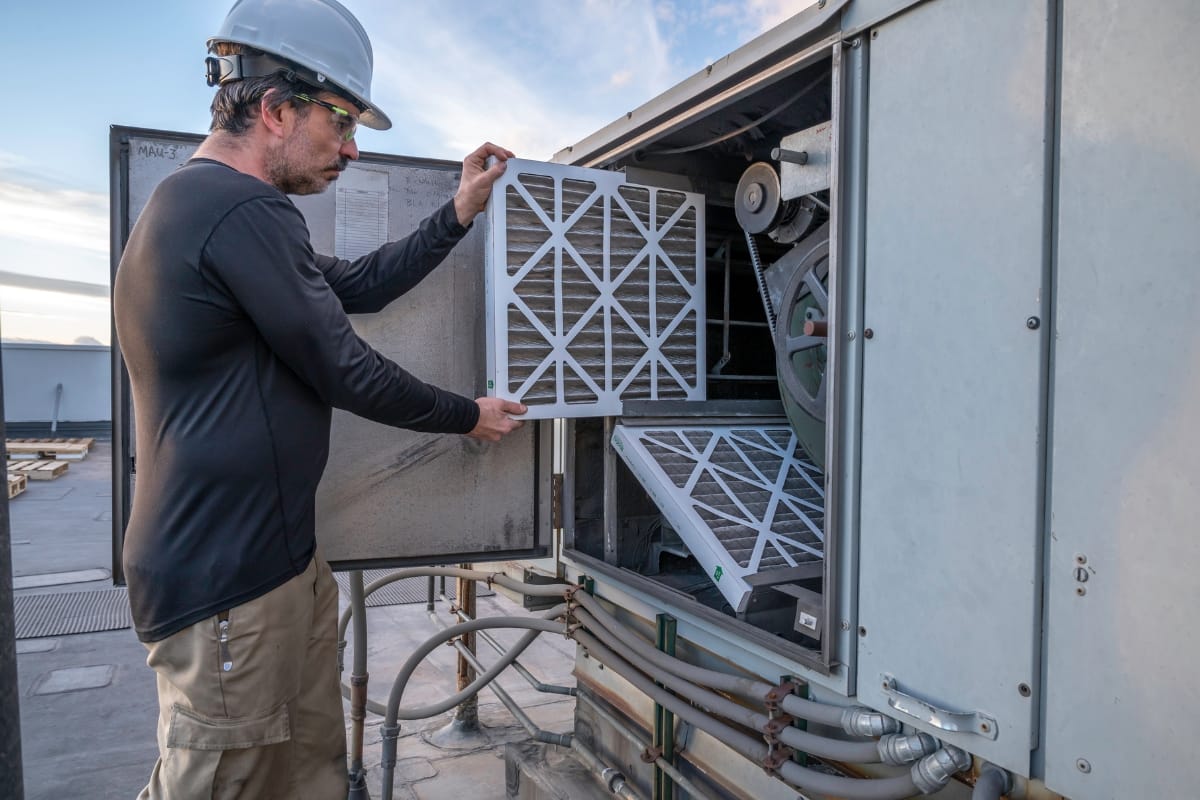
Commercial HVAC systems are often under constant demand, especially in cities with extreme weather like Atlanta. Over time, this wear leads to common issues such as refrigerant leaks, compressor failure, and uneven airflow throughout the building. These problems can cause reduced comfort, higher energy bills, and even system failure if left unchecked. Regular maintenance helps detect early warning signs and allows small issues to be fixed before they turn into expensive repairs or disruptions.
Routine checkups and scheduled cleanings keep the system running efficiently and reduce the likelihood of unexpected breakdowns. Catching problems early not only saves money but also helps maintain consistent temperatures and air quality, which is essential in office buildings, retail spaces, and other high-traffic areas.
How to Detect and Fix Refrigerant Leaks in Commercial HVAC Systems
Refrigerant leaks are a common source of trouble in commercial systems. They typically occur in the coils or line sets and may not always be obvious at first. One of the early signs is a noticeable drop in cooling performance. Other indicators include a hissing noise near components, frozen lines, or a sudden rise in energy consumption.
Technicians use pressure gauges and electronic leak detectors to pinpoint the location of the leak. Once found, the damaged section is either sealed or replaced, and the system is recharged with the correct amount of refrigerant. Fixing these leaks quickly not only restores proper function but also ensures compliance with environmental regulations. Refrigerant loss not only impacts system performance but can also lead to long-term damage if the compressor is forced to run with low pressure for extended periods.
What Causes Commercial HVAC Compressor Failure and How to Prevent It
The compressor is one of the most important and expensive components of an HVAC system. If it fails, the entire unit may stop working. Causes of compressor failure often include prolonged operation with low refrigerant, electrical faults, or poor airflow caused by dirty filters or blocked coils.
To avoid compressor issues, systems should be cleaned and inspected regularly. This includes checking electrical connections, cleaning both evaporator and condenser coils, and replacing air filters when they become clogged. By keeping the system clean and balanced, stress on the compressor is reduced. Early detection of minor electrical or refrigerant issues also helps avoid full system failure.
How to Troubleshoot and Resolve Airflow Issues in Commercial HVAC Systems
Inconsistent airflow can make it difficult to maintain even temperatures throughout a commercial space. It may result from blocked vents, dirty filters, or problems within the ductwork. A lack of proper airflow puts added strain on the HVAC system and can reduce its efficiency.
Technicians typically begin by inspecting air filters, vents, and dampers. If those components are clear, they may use airflow meters to assess pressure at different points in the system. Solutions vary depending on the cause but may involve cleaning or replacing filters, clearing ducts, adjusting dampers, or fixing broken fans or motors. Maintaining clear airflow helps extend the life of the system and keeps energy costs under control.
Ask ChatGPT
How Does Proper Maintenance Extend the Lifespan of Commercial HVAC Systems?
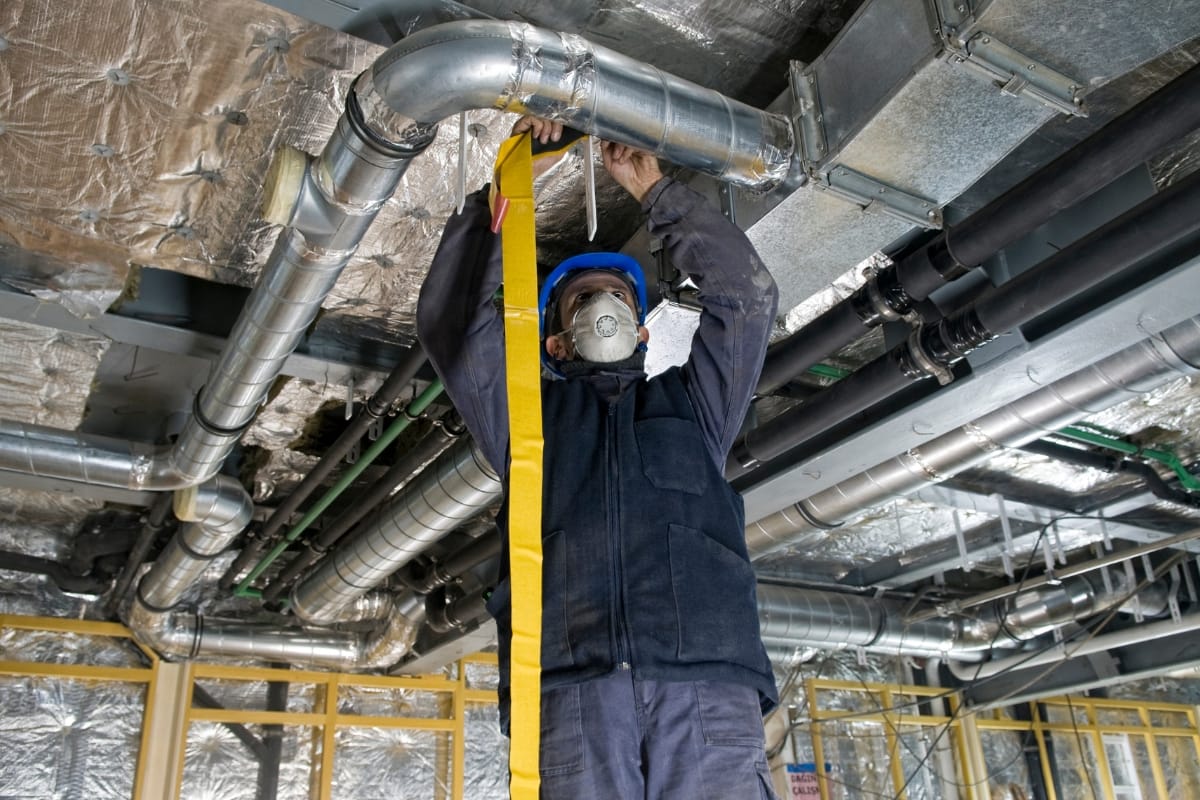
Routine maintenance plays a critical role in keeping commercial HVAC systems operating efficiently and lasting longer. Without regular care, systems are more likely to experience premature wear, reduced performance, and unexpected breakdowns. When small issues are addressed early, they are less likely to develop into costly repairs or system failures. Tasks like cleaning coils, replacing filters, checking refrigerant levels, and inspecting electrical components help maintain optimal conditions for all major parts.
By reducing unnecessary strain on the system, maintenance helps the equipment function closer to its intended design specifications. Over time, this minimizes mechanical fatigue and preserves system integrity, making it possible to delay major replacements. The result is fewer disruptions to business operations and better control over long-term facility costs.
What Is the Average Lifespan Extension From Regular Maintenance?
A well-maintained HVAC system can outlast its expected service life by several years. While most commercial systems are built to last around 15 years, consistent maintenance may extend that to 20 or even 25 years. This extra time is possible because clean filters and coils allow for smoother airflow, and regular system checks catch wear and tear early before it spreads to other components.
Extending the life of the system not only protects the initial investment but also gives businesses more time to budget for future upgrades. A longer service life also reduces the environmental impact by decreasing the frequency of equipment disposal and replacement.
How Does Maintenance Reduce Operating Costs Over Time?
An HVAC system that is regularly maintained runs more efficiently, which leads to lower monthly energy bills. Dirty filters, clogged coils, and misaligned components force the system to work harder than necessary. This extra effort increases power consumption and leads to higher operating costs. Preventative maintenance restores the system’s ability to operate efficiently, cutting down on wasted energy.
In addition to reducing energy use, maintenance helps prevent unexpected breakdowns. Emergency repairs are often more expensive and disruptive than routine service visits. A predictable maintenance schedule keeps equipment in better condition and helps avoid the need for rushed fixes. It also reduces the chance of having to replace the entire system sooner than expected.
What Are the Signs That Your Commercial HVAC System Needs Immediate Maintenance?
Several warning signs indicate that a system may be overdue for maintenance. These include loud or unusual noises during operation, inconsistent temperatures between rooms, poor airflow, and a noticeable increase in utility costs. Other signs may involve system alerts, thermostat errors, or unpleasant smells coming from vents, which could point to mold or debris buildup.
Addressing these issues promptly can prevent further damage and ensure the system continues to function properly. Ignoring early signs often leads to more severe problems that are harder and more expensive to fix. Regular attention to these indicators helps preserve system health and keeps facilities running smoothly.
What Atlanta-Specific Factors Should Businesses Consider for HVAC Maintenance?
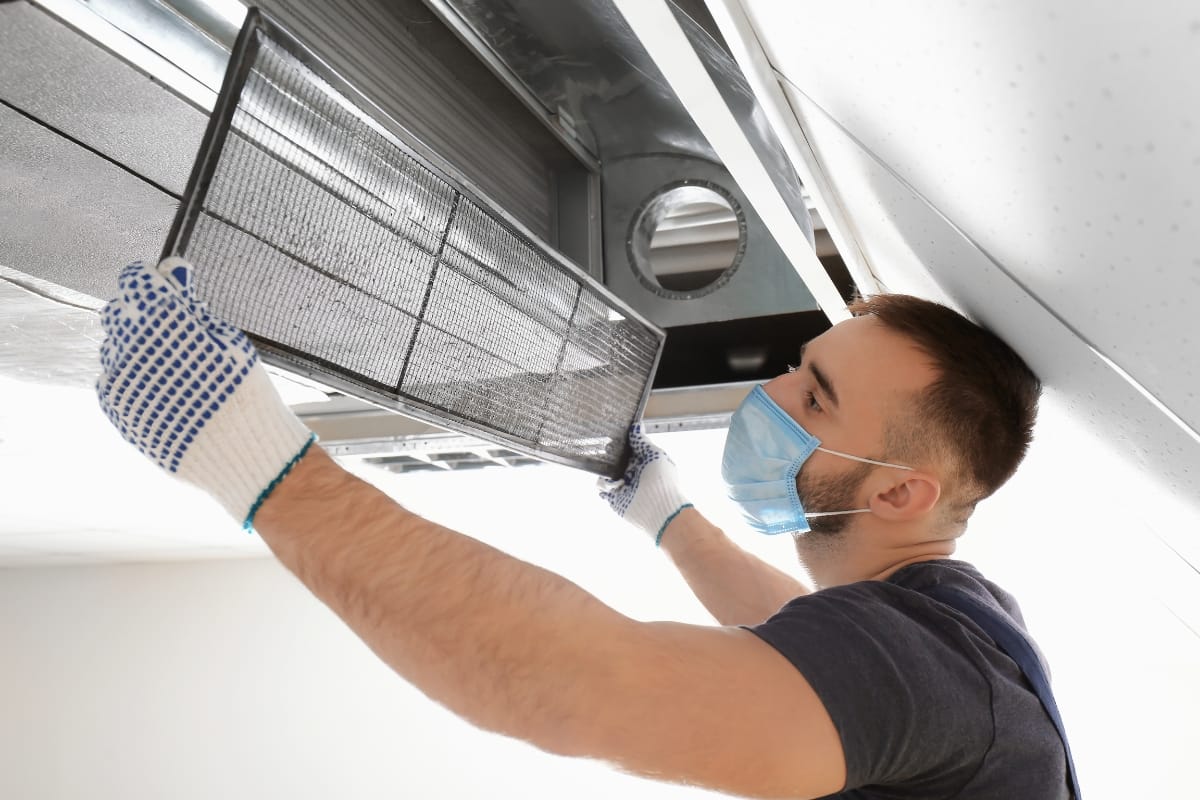
Maintaining a commercial HVAC system in Atlanta requires attention to several local factors that influence how systems perform and age over time. The city’s long, hot summers combined with high humidity levels can place extra strain on equipment. These environmental conditions lead to faster wear on components, particularly in systems that are already running close to full capacity.
Because of this, HVAC maintenance in Atlanta is not just about routine service. It involves adjusting schedules and procedures to match the demands created by the local climate. Businesses must also account for pollen and other airborne pollutants that are more prevalent in the region during certain times of year, which can clog filters and reduce air quality if not addressed promptly.
How Do Atlanta Building Codes Affect Commercial HVAC Maintenance?
Building codes in Atlanta require commercial HVAC systems to meet specific standards related to safety, energy efficiency, and indoor air quality. These codes are in place to ensure that commercial buildings provide a safe and healthy environment for employees and customers.
HVAC maintenance plans must account for required system inspections and documentation. For example, systems must be maintained to avoid excessive emissions, leaks, or other problems that could lead to code violations. Businesses that fall behind on routine maintenance may risk penalties or added repair costs if inspectors find issues that could have been avoided with regular service. Keeping up with these requirements ensures compliance and helps avoid unnecessary complications.
What Local Regulations Impact Commercial HVAC System Servicing?
Regulations in Atlanta often require documentation of service activity, including inspection logs and reports on refrigerant use. Commercial HVAC systems must comply with environmental standards related to energy consumption and emissions. This means that service technicians need to be familiar with approved materials and procedures, such as using low-global-warming-potential refrigerants and ensuring systems meet current ventilation standards.
Failing to follow these guidelines can lead to fines or force a business to shut down equipment until issues are resolved. Being proactive about system servicing and keeping detailed records helps businesses stay within legal requirements while extending the life of their HVAC equipment.
How Does Atlanta’s Hot and Humid Climate Influence Maintenance Schedules?
In Atlanta, heat and humidity place unique demands on HVAC systems. Equipment often runs for long periods during the summer months, making it more susceptible to overheating, moisture buildup, and the growth of mold or mildew. These conditions can lead to decreased efficiency or system breakdowns if not addressed through timely maintenance.
For this reason, maintenance schedules in the Atlanta area often include more frequent filter replacements, additional coil cleaning, and closer monitoring of system performance. Preventative care is especially important during peak summer and early fall, when systems are under the most stress. A consistent maintenance routine tailored to local weather patterns helps reduce energy use, avoid costly repairs, and ensure reliable performance year-round.
How Can Businesses Choose the Right Commercial HVAC Maintenance Provider in Atlanta?
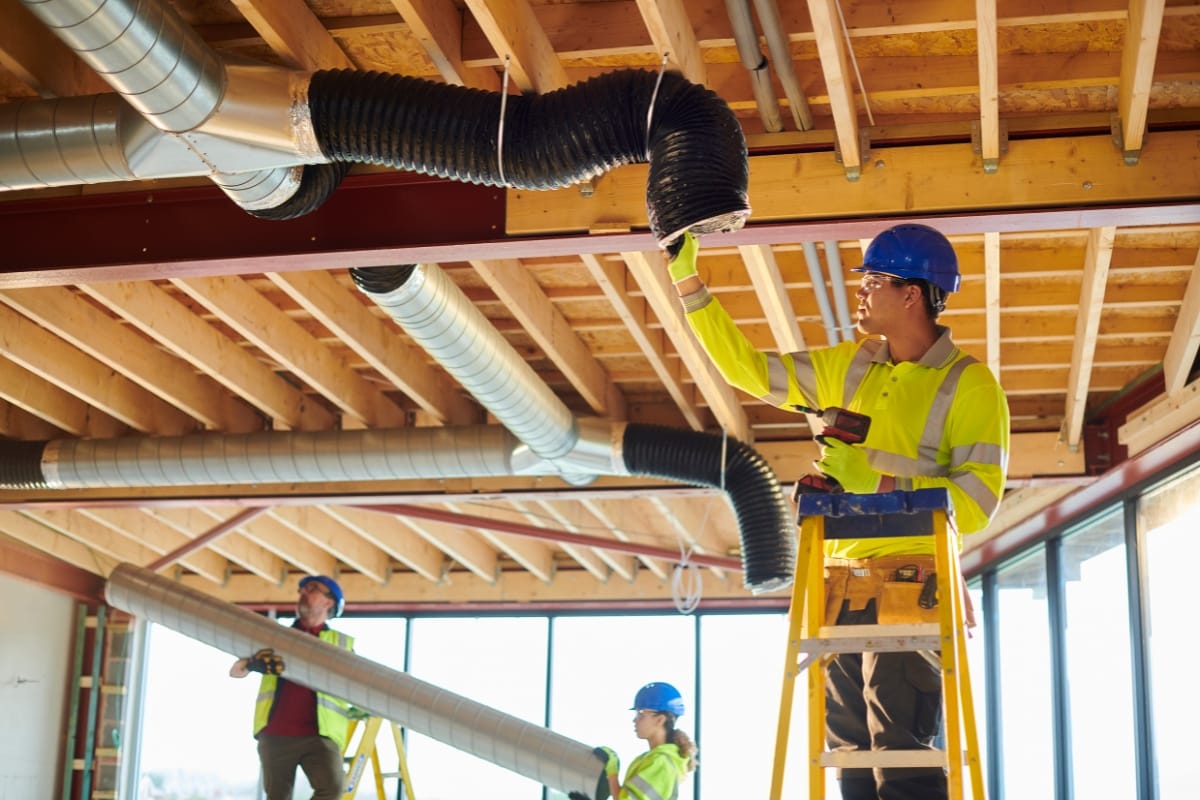
Finding the right HVAC maintenance provider in Atlanta requires more than just comparing prices. A reliable partner will have deep technical experience, a solid understanding of local climate conditions, and the ability to meet both routine and emergency service needs. In a city where summer heat and humidity can quickly push HVAC systems to their limits, timely and knowledgeable service is essential to avoid breakdowns and keep systems running efficiently.
A strong provider will not only perform basic upkeep but will also understand Atlanta’s specific building codes and environmental factors. Familiarity with local regulations helps ensure that systems stay compliant and perform well throughout the year. Providers who regularly work with commercial clients tend to offer more structured service agreements, tailored schedules, and clear documentation, which can all help reduce risk and improve long-term system reliability.
What Qualifications Should Atlanta HVAC Technicians Have?
Commercial HVAC systems require specialized knowledge, and not all technicians are equally equipped to handle them. Technicians working in the Atlanta area should be certified through recognized programs and have specific experience with large-scale or multi-zone systems commonly found in office buildings, retail centers, and other commercial properties.
It’s also important that technicians stay current with evolving standards and technologies. This includes an understanding of how regional weather patterns affect system performance and how to make maintenance decisions based on those conditions. Consistent training, hands-on experience, and up-to-date licensing are key indicators of a capable technician.
Why Is 24/7 Emergency Service Important for Commercial HVAC Systems?
Downtime is expensive for any business. When an HVAC system fails in the middle of a hot summer day, it can disrupt operations, impact employee productivity, and even damage sensitive equipment or products. Having access to emergency service at any time of day or night helps limit these risks.
A provider that offers 24/7 emergency support gives businesses peace of mind, knowing that critical problems can be addressed quickly. Fast response times also reduce the chance that a small issue becomes a larger, more expensive one. In an environment like Atlanta, where weather extremes can place heavy stress on cooling systems, access to reliable emergency repair is a practical necessity.
How to Evaluate Maintenance Plans for Commercial HVAC Systems
Choosing a maintenance plan should involve more than just checking off a list of services. A good plan will align with your business’s needs, building size, and equipment age. It should clearly outline how often visits will occur, what specific tasks will be completed, and how issues will be reported or addressed.
Look for plans that cover the full range of system needs, including cleaning, inspections, and performance testing. A well-structured plan makes it easier to budget for long-term maintenance and minimizes surprises. Clear terms, honest pricing, and a track record of customer satisfaction are good indicators of a plan that will help extend the life of your HVAC system and keep it operating efficiently in Atlanta’s demanding climate.
Frequently Asked Questions
Q: Why is regular HVAC maintenance important for commercial buildings? A: Regular HVAC maintenance extends system lifespan, improves energy efficiency, ensures compliance with local regulations, and maintains healthy indoor air quality—thereby reducing costly emergency repairs and downtime.
Q: How often should commercial HVAC filters be replaced in Atlanta? A: Filters should be replaced every 1 to 3 months, with more frequent replacements recommended in environments with high dust or humidity to maintain optimal airflow and efficiency.
Q: What are the benefits of using smart thermostats in commercial HVAC systems? A: Smart thermostats automatically adjust temperatures based on occupancy and environmental conditions, offer remote monitoring, and help track energy usage, which improves efficiency and reduces energy bills.
Q: Can regular HVAC maintenance reduce energy bills for a business? A: Yes, by ensuring that systems run at peak efficiency and addressing issues such as refrigerant leaks or airflow obstructions early, regular maintenance can lower overall energy consumption and reduce utility bills.
Q: How do commercial HVAC energy audits work? A: Energy audits assess a system’s performance by evaluating airflow, energy consumption, and component efficiency, then recommend improvements to reduce energy waste and operational costs.
Q: What specific challenges does Atlanta’s climate pose for commercial HVAC systems? A: Atlanta’s hot and humid conditions force HVAC systems to operate continuously, leading to faster wear, increased mold risk, and greater energy usage, which requires more frequent maintenance.
Q: What certifications should a reliable Atlanta HVAC technician hold? A: A reliable technician should hold certifications such as NATE and EPA 608, and have local experience to effectively handle the specific maintenance and regulatory requirements in Atlanta.
Final Thoughts
Regular upkeep is the key to keeping your commercial HVAC system running smoothly and cost-effectively for years to come. By partnering with Galgon HVAC & Mechanical Service, you’ll benefit from proactive inspections, timely tune-ups, and expert repairs—all designed to maximize efficiency and prevent unexpected downtime. Don’t wait until your system falters: call Galgon HVAC & Mechanical Service today at (404) 352-1500 or visit our website to fill out the Request Service/Quote form and schedule your HVAC service. Your building—and your bottom line—will thank you.
